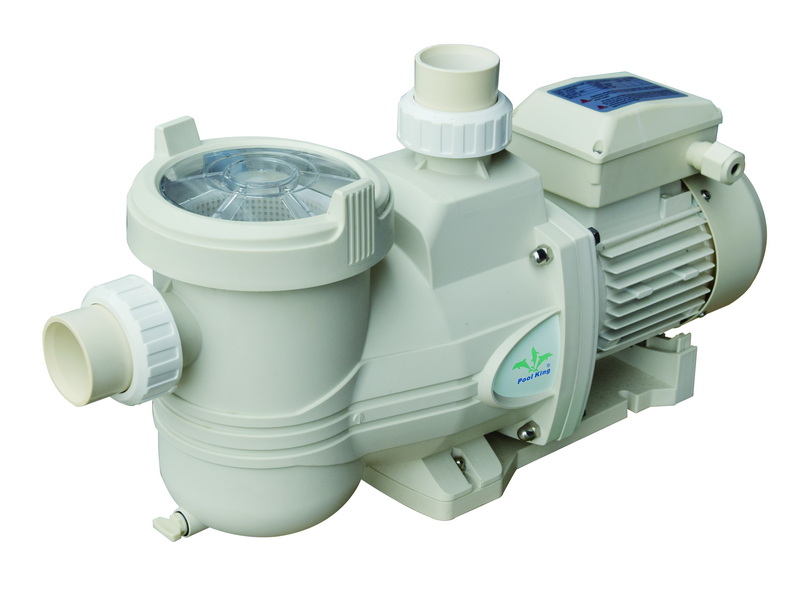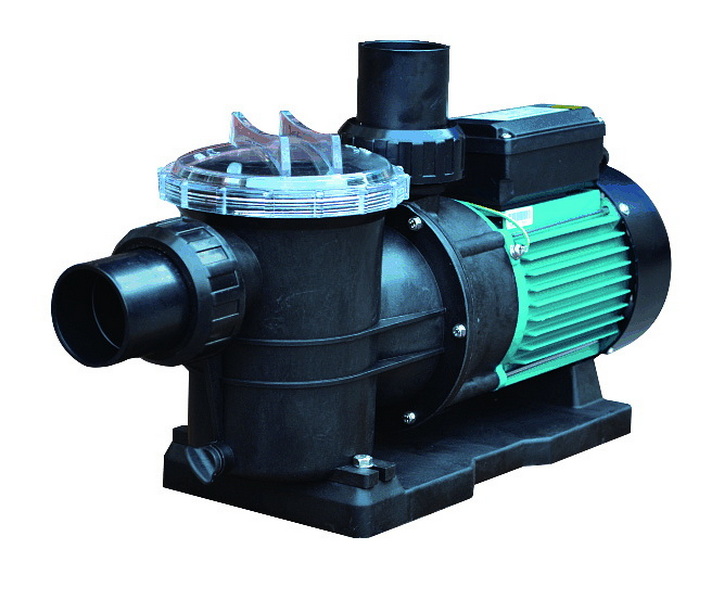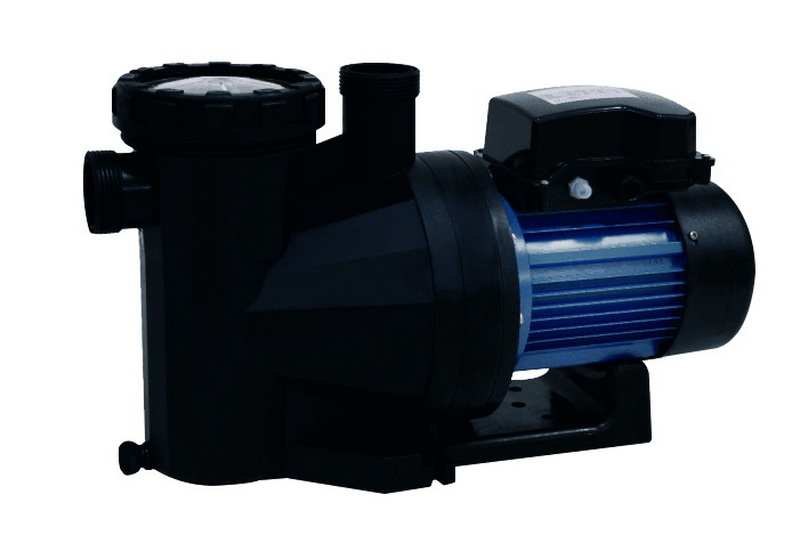Views: 222 Author: Tina Publish Time: 2025-09-07 Origin: Site








Content Menu
● What Is a Pool Pump and Why Is It Important?
● Understanding Storm Risks for Pool Equipment
● Should You Turn Off Your Pool Pump During a Storm?
>> Why Turn Off the Pool Pump?
● How to Safely Turn Off and Secure Your Pool Pump
● Additional Storm Preparation Tips for Pool Owners
>> Protecting your pool system extends beyond just turning off the pump:
● Common Pool Filters and Their Storm Considerations
● The Role of Other Pool Equipment During Storms
>> Pool Heaters
>> Pool Lighting and Accessories
● What Happens If You Don't Turn Off the Pool Pump?
● Summary of Key Precautions for Storm Safety
>> 1. Can I leave my pool pump running during light rain?
>> 2. How long should I wait to turn on the pump after a storm?
>> 3. Will turning off the pump affect my pool's water quality?
>> 4. What should I do if my pump motor gets wet during a storm?
>> 5. Should I install a backup generator for my pool system?
When severe weather approaches, particularly storms, pool owners often wonder whether they should turn off their pool pumps. This is a common concern because the pool pump is a critical piece of equipment that keeps water clean and balanced but is also an electrical device vulnerable to the elements. This comprehensive guide will explore whether you should turn off your pool pump during a storm, the risks involved, safety tips, and maintenance advice to protect your pool system while ensuring optimal performance.

A pool pump is a motorized device designed to circulate water through the pool's filtration system. It pulls water from the pool through the skimmers and main drains, pushes it through the filter (such as sand, diatomaceous earth (DE), or cartridge filters), and returns clean, clear water back into the pool. This circulation is vital to prevent algae buildup, maintain chemical balance, and promote good water quality.
Efficient filtration and circulation prevent the growth of harmful bacteria and algae, which can make swimming unsafe. Therefore, pool pumps run for several hours daily throughout the swimming season to maintain proper water conditions.
Storms, especially those with heavy rain, strong winds, and lightning, can disrupt pool systems in various ways:
- Electrical risks: Lightning strikes pose a direct hazard to any outdoor electrical device, including pool pumps. Water and electricity can be a dangerous combination. Exposure to moisture can cause short circuits and permanent damage.
- Flooding and debris: Heavy rainfall often leads to flooding, which can submerge electrical outlets and pump motors. Strong winds may also carry leaves, branches, and other debris into the pool and filtration system, potentially clogging or damaging the pump and filters.
- Power surges and outages: Lightning or weather-related electrical issues can cause power surges that may damage pump motors or electronic controls. Repeated surges shorten the lifespan of your pool equipment.
- Water contamination: Stormwater often carries dirt, pollutants, and organic matter that enter the pool, overwhelming filtration capacity and necessitating extra maintenance.
The straightforward answer is: Yes, it is generally advisable to turn off the pool pump during severe storms to protect the equipment from electrical hazards and damage.
- Safety first: Turning off the pump prevents electrical accidents caused by flooding or lightning strikes. Running electrical equipment during storms increases the risk of shock or fire.
- Protect equipment: Sudden power surges or outages can damage motors and electronics. Turning off the pump helps avoid costly repairs or replacements.
- Prevent water contamination: If debris floods into the pool system, the clogged filter and pump may lead to equipment strain or failure if they keep running.
- Reduce wear and tear: Heavy rain can force the pump to run inefficiently or force it to work against conditions it wasn't designed for, reducing its operational lifespan.
An exception is light rain with no strong winds or lightning, where keeping the pump running can help maintain water circulation and prevent algae growth. However, if there is any risk of flooding or lightning, it is prudent to turn off the pump immediately.
1. Turn off the power: Switch off the pool pump at the breaker box to cut electrical power safely. This also prevents the pump from accidentally turning on during unsafe conditions.
2. Unplug the pump: If the pump motor plugs into an outlet, unplug it to isolate it from power.
3. Cover the equipment: Use waterproof covers or tarps to shield the pump and related components from rain, leaves, and flying debris.
4. Clear the area: Remove leaves, branches, and other debris around the pool area to reduce hazards and prevent clogs.
5. Check drainage systems: Ensure proper drainage away from the pump to prevent flooding around electrical components and the motor.
6. Secure loose fittings and hoses: Strong winds can dislodge hoses or fittings, so secure them to avoid damage.

Once the storm passes, it is essential to carefully evaluate and maintain the system before turning it back on.
- Inspect for damage: Check the pump and filtration system for cracks, leaks, or broken parts caused by debris or flooding.
- Remove debris: Clean out skimmer baskets, pump baskets, and filters to remove leaves, dirt, and other contaminants.
- Check electrical wiring: Water infiltration into electrical fittings can cause corrosion or shorts. If in doubt, have a licensed electrician inspect your system.
- Allow the motor to dry: If the pump motor or any electrical components have gotten wet, allow them to dry thoroughly before turning on power.
- Restart the pump slowly: When turning the pump back on, monitor it for unusual noises, vibrations, or performance issues that could indicate internal damage.
- Test water quality and rebalance pool chemistry: Stormwater can alter pool pH, alkalinity, and sanitizer levels. Conduct a water test and adjust chemicals accordingly to maintain a safe swimming environment.
- Invest in a surge protector designed specifically for pool equipment. This helps shield sensitive electronics from electrical spikes.
- Consider installing a whole-house or pool-specific automatic shutoff system that detects weather conditions or power surges and turns off pool equipment automatically.
- Schedule regular maintenance and inspections to ensure all seals, fittings, and electrical connections are watertight and in good repair.
- Use LED pool lights and accessories with high waterproof ratings (IP65 or higher) to minimize electrical risks during storms.
- If possible, install smart pool monitoring systems that allow remote control and notifications to manage your pool equipment in advance of or during a storm.
- Maintain proper pool water levels; avoid letting water overflow, which can cause flooding around equipment.
| Filter Type | Storm Impact | Notes |
|---|---|---|
| Sand Filter | May clog with debris but is robust | Easy to backwash and clean after storms |
| DE (Diatomaceous Earth) Filter | Can be messy if disrupted | Requires careful cleanup and professional servicing |
| Cartridge Filter | Clogs easily with debris | Cartridges must be removed, cleaned, and dried after storms |
Knowing how your filter type reacts to storm conditions helps tailor your maintenance after the weather event.
If your pool has a heater, turning it off during the storm is essential as it is also vulnerable to electrical damage and water infiltration. Heaters often have external electrical controls and internal plumbing susceptible to damage from extreme weather.
Many pools have LED or fiber-optic lighting systems. These should be switched off and protected during storms to avoid electrical malfunctions. Waterproof casings and proper sealing prevent water ingress, but extreme weather conditions may still pose risks.
Automatic covers can protect your pool surface from excessive debris accumulation during storms. However, ensure you disengage the cover motor system and power before the storm to avoid electrical issues.
Leaving the pump running during a storm can have the following consequences:
- Electrical damage to the pump motor or control boards from power surges or water exposure.
- Increased risk of shock or fire hazards from water-infiltrated electrical components.
- Mechanical failure caused by debris clogs leading to overheating or system strain.
- Contaminated pool water if the filtration becomes overwhelmed with storm debris.
- Higher repair and replacement costs and potential pool downtime.
- Always monitor weather forecasts and prepare ahead.
- Turn off and unplug your pool pump at the breaker before a severe storm.
- Protect equipment with waterproof covers and clear the pool area of debris.
- Inspect and maintain all pool equipment promptly after the storm.
- Maintain good water chemistry to prevent post-storm issues.
Turning off your pool pump during severe storms is a critical safety and maintenance step. It protects the electrical and mechanical components of your pool system from damage caused by lightning, flooding, debris, and power surges. Although circulation is essential to pool water health, the risks during storms outweigh the benefits of keeping the pump running. Proper storm preparation, including shutting down and securing your pump, protecting the equipment, and post-storm inspection and maintenance, will ensure your pool remains safe, functional, and ready for use.

Yes. Keeping the pump running during light rain with no lightning or flooding risk helps maintain water circulation and prevents algae growth.
Wait until the area is dry, and you have inspected and cleaned the pool system, typically a few hours to a full day depending on conditions.
Brief shutdowns during storms have minimal impact. However, prolonged downtime can lead to algae and bacteria growth.
Do not turn it on immediately. Allow it to dry completely or have a professional technician inspect it before restarting.
A backup generator is useful for maintaining pool circulation during power outages but must be installed properly to handle pool load and ensure safety.
